From June 2 to June 6, 2025, the Faculty of Humanities and Social Sciences at the University of Split hosted its first Blended Intensive Programme (BIP) titled "Sustainable, Social and Participatory Learning for Innovative Transformation (SPLIT)."
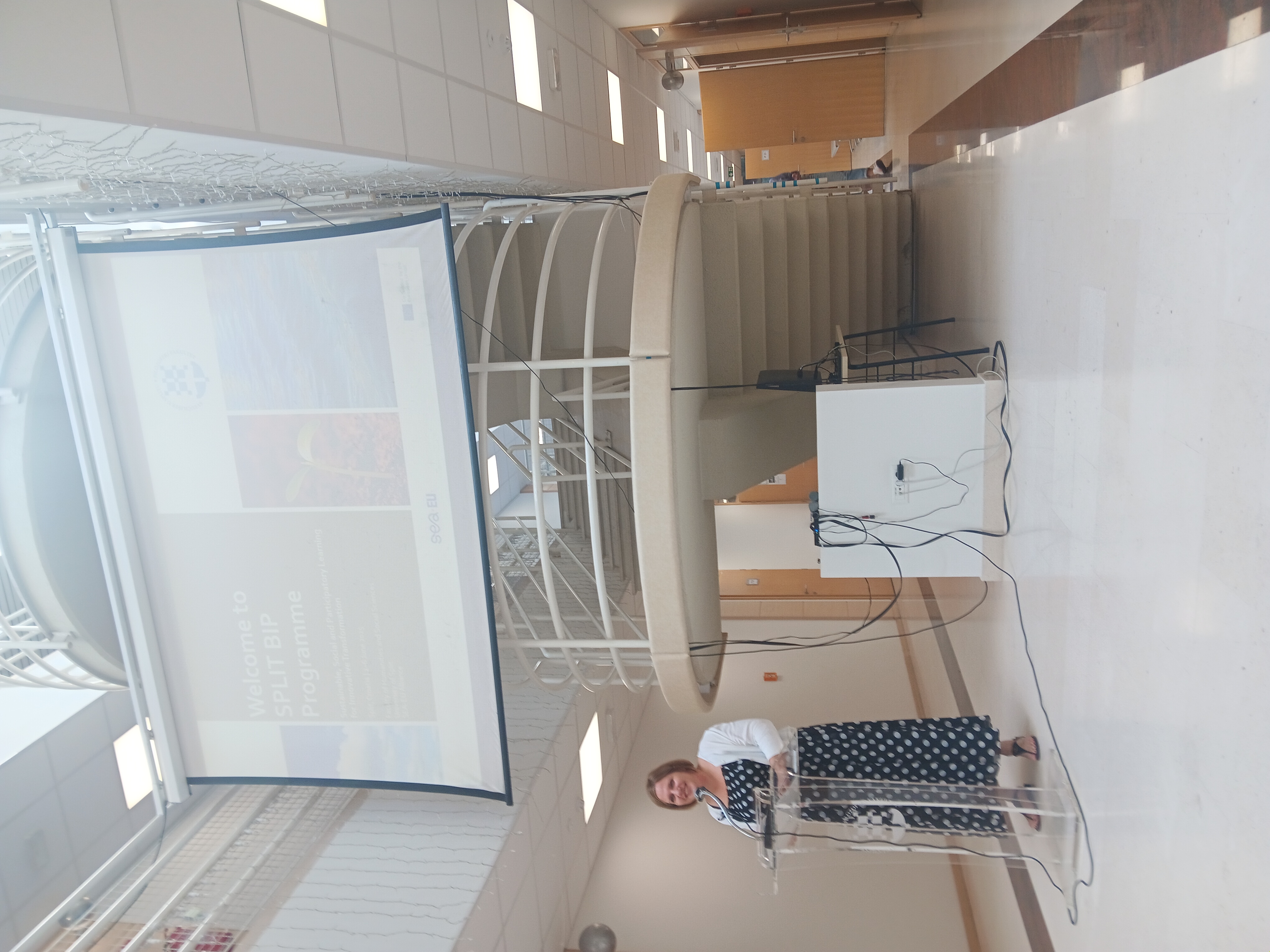
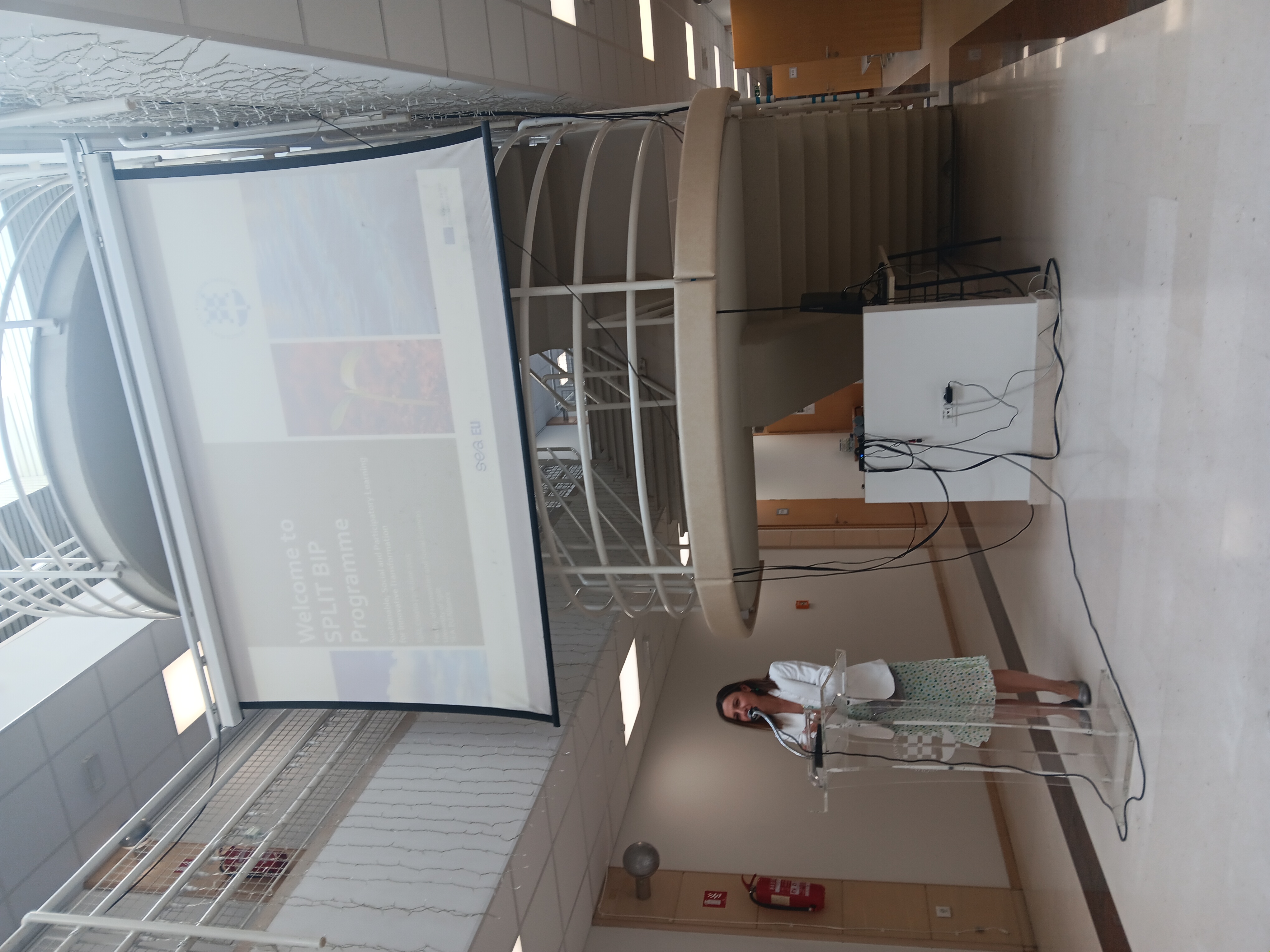
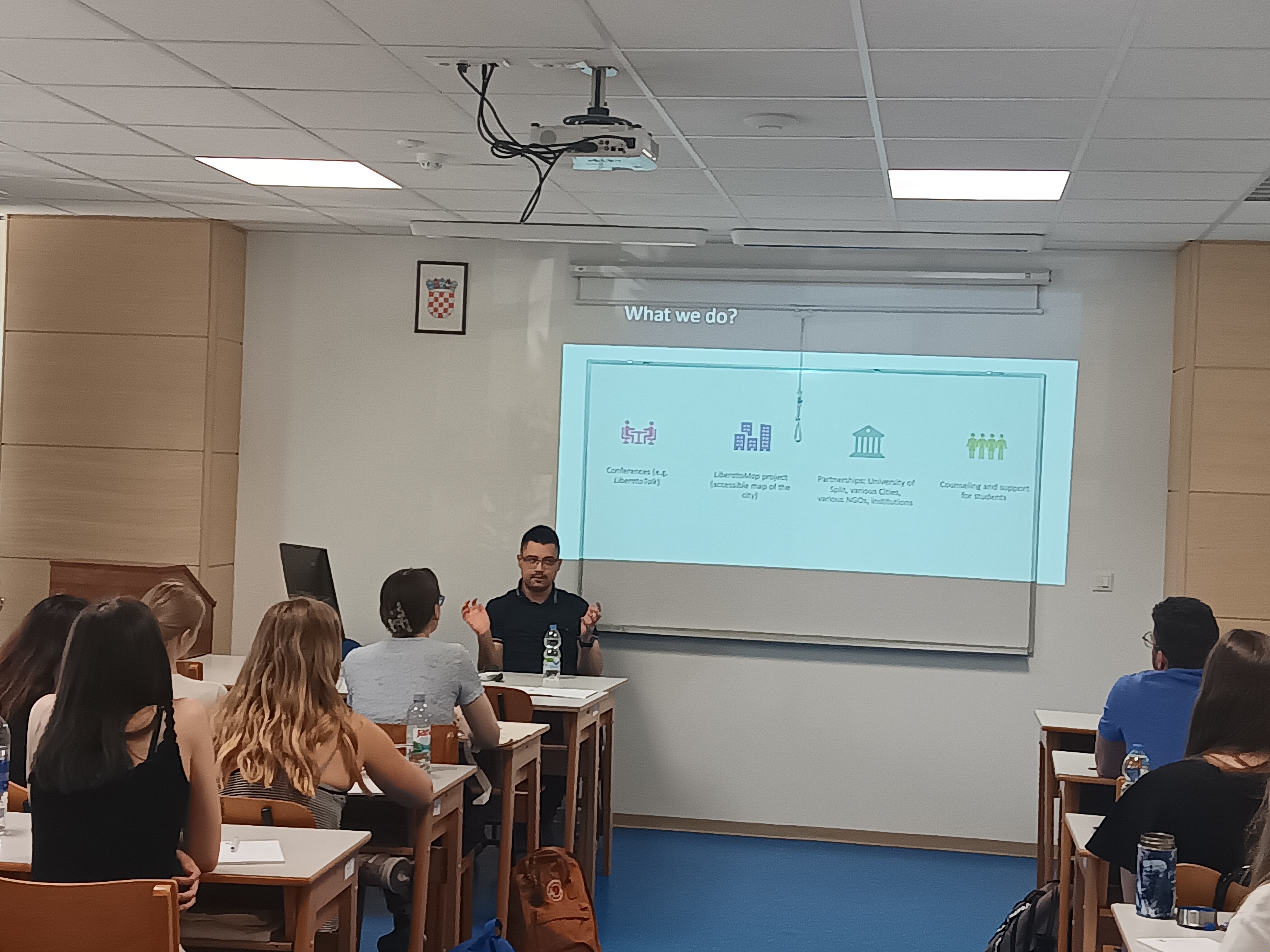
The program was developed within the SEA-EU Society Hub working group, in collaboration with Kiel University, the University of Gdańsk, and the University of Cádiz, with strong support from the University of Split's Office for International Cooperation, the Split Technology Park, and the SEA-EU Office.
The program, led by Assistant Professor Ivana Jadrić, Ph.D., brought together 21 students from seven European universities. It was supported by four lecturers from the Universities of Cádiz and Gdańsk who participated in the on-site component, as well as eight lecturers from the Universities of Split, Cádiz, Kiel, and Gdańsk who contributed to the virtual part of the program.
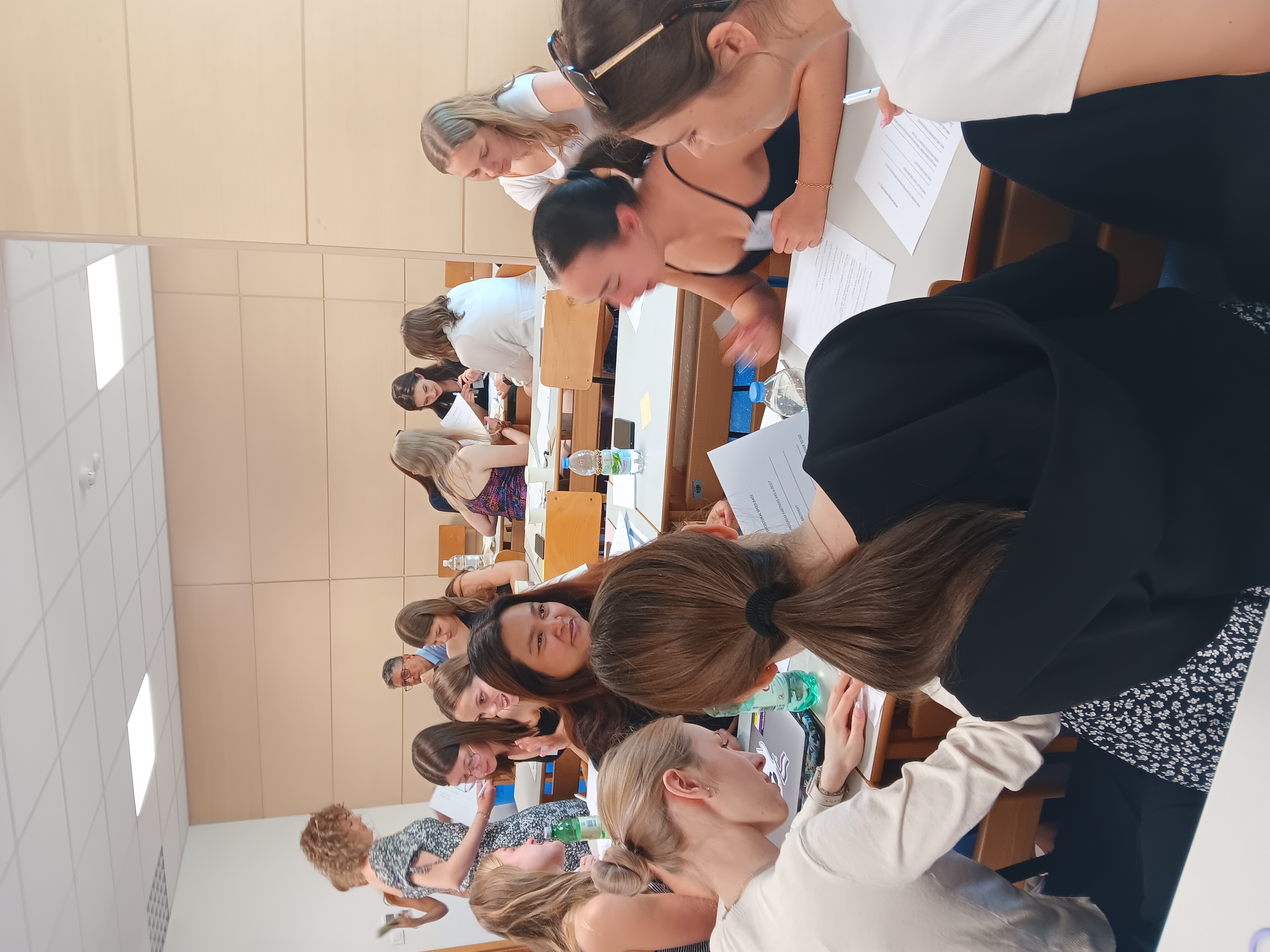
The virtual component of the course took place from May 12 to May 20 and included a total of 10 hours of lectures and workshops on the following topics:
- The Inner Development Goals Framework
- Solidarity, Participation and Diversity – What Kind of Education Do We Need to Address Contemporary Social Challenges
- Transformative Learning Approaches in Contemporary Society, Labour Market and Education System from the Perspective of the SDGs
- The Importance of Communication in Effective Leadership: Navigating Team Dynamics and Projects through Intercultural Understanding
- Introduction to Inspiring Social Innovation Projects at the University – Examples of Good Practice
- Learning Environment and Student Motivation
Upon arrival in Split, students were introduced to a range of social challenges through interactive presentations and guest lectures. Stipe Margić from the Liberato Association spoke about the challenges faced by students with disabilities, while Mihaela Mladar from the Sunce Association shared her experiences working in the nonprofit sector. Rita Aničić, a student of Communication and Media Studies and the editor of the Aktivist radio show on Radio Kampus, presented additional examples of social challenges from a student perspective.
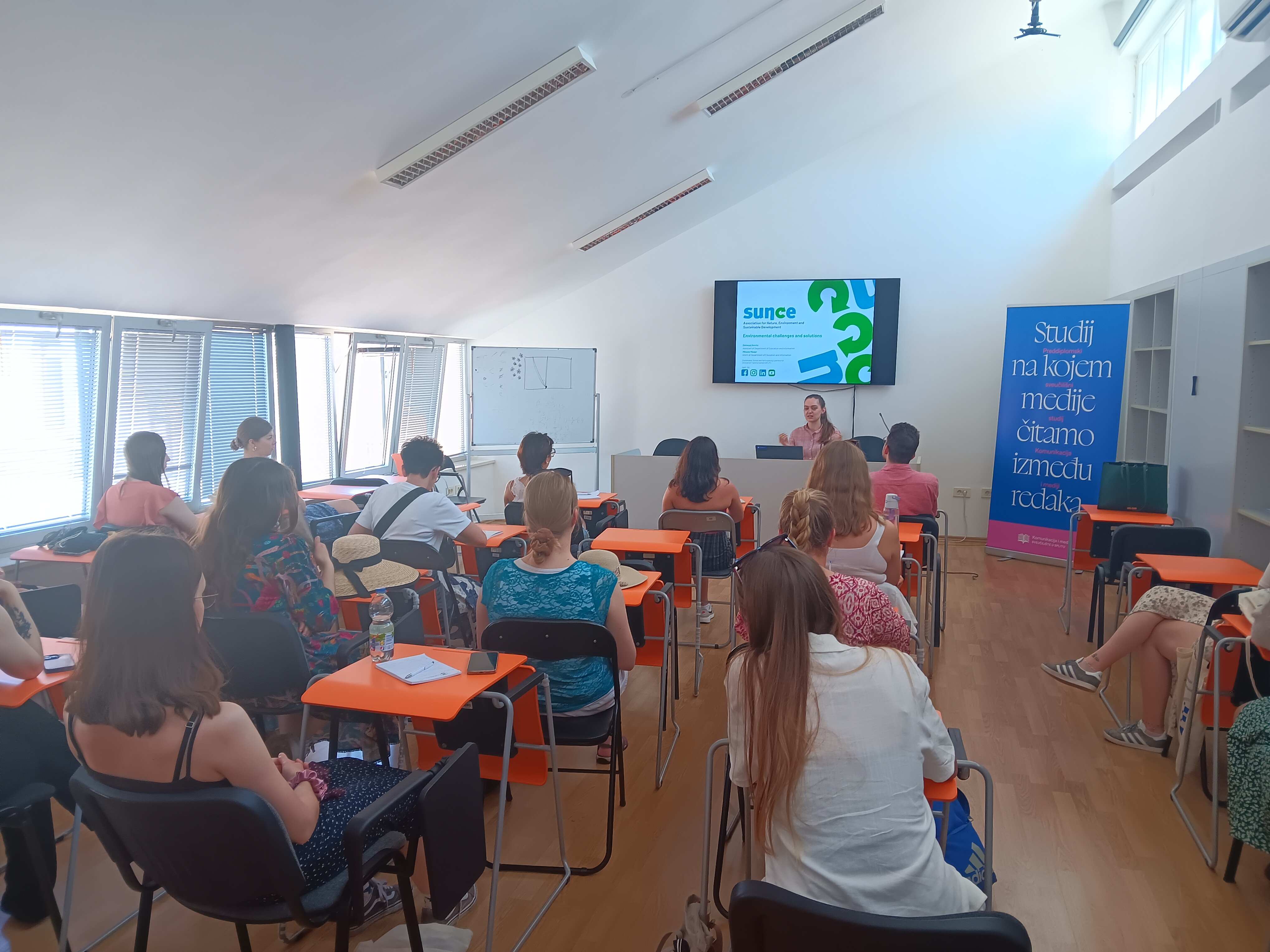
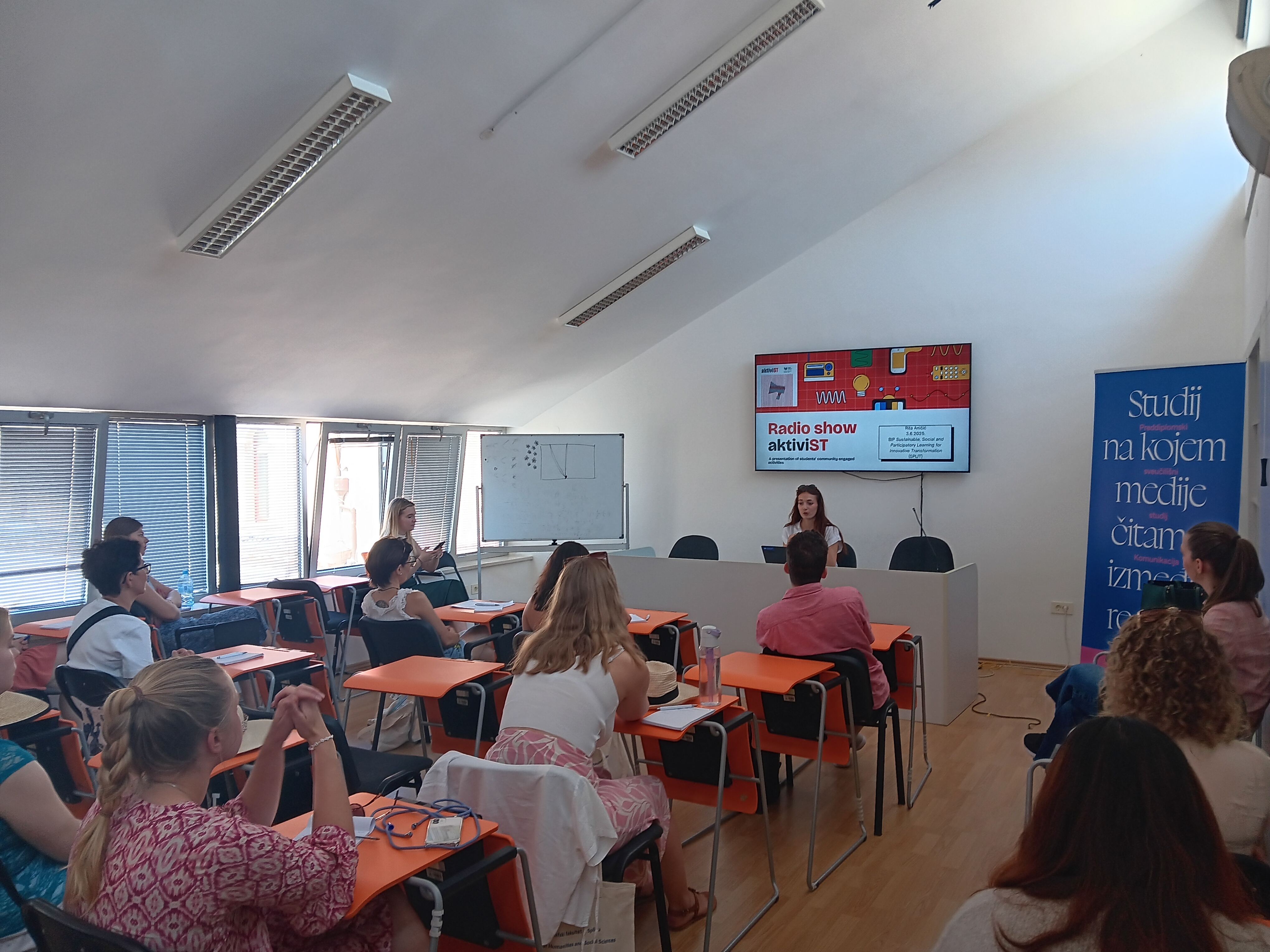
The students also visited the Split Technology Park, where, guided by Lana Ugrčić, they toured the facilities, learned about the idea behind developing a technological foundation for innovation in the City of Split, and attended presentations by startups such as Metabelly, SplX, and Icerebus.
The cultural part of the program included a guided tour of the historic city center and informal social activities.
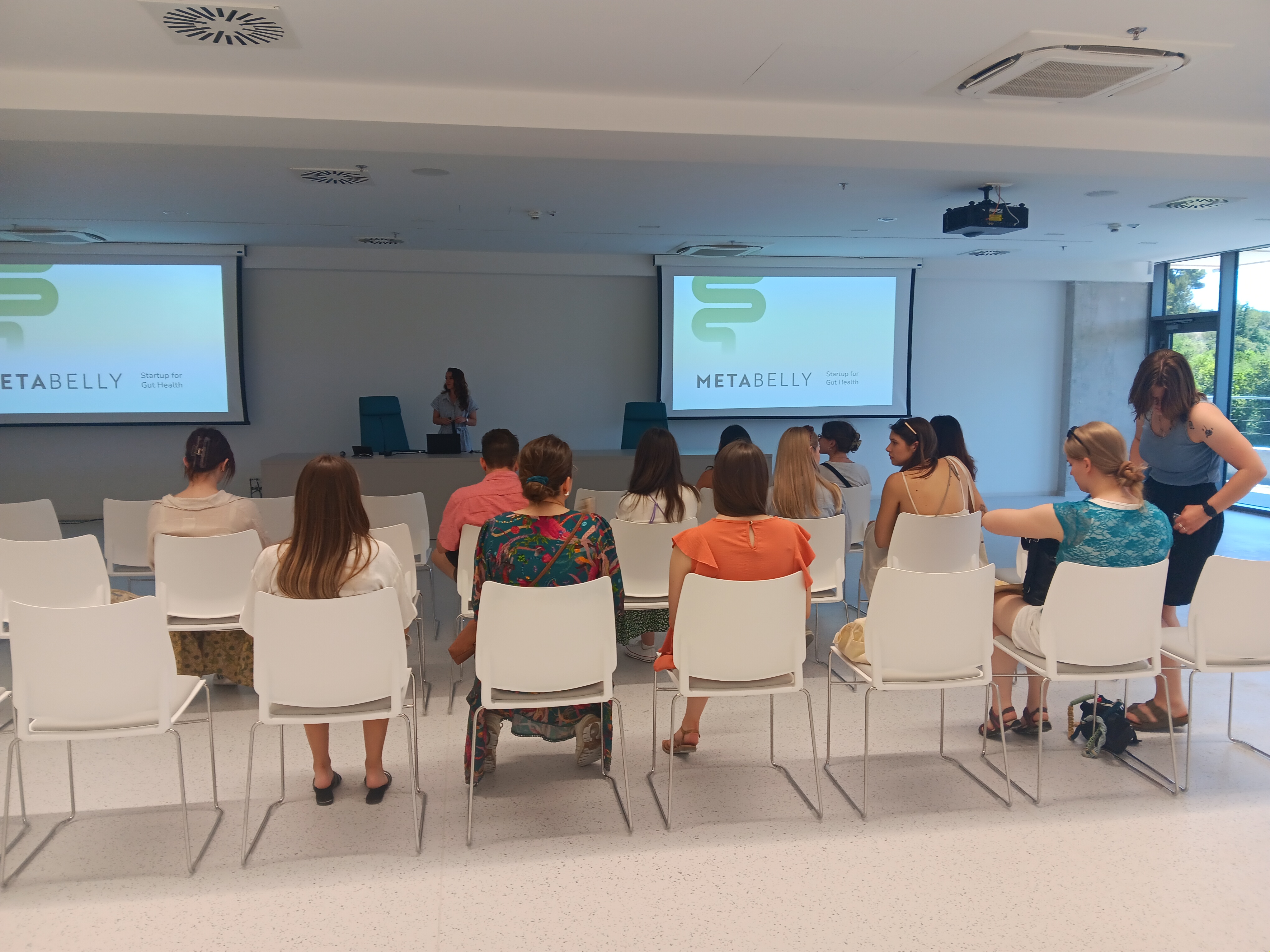
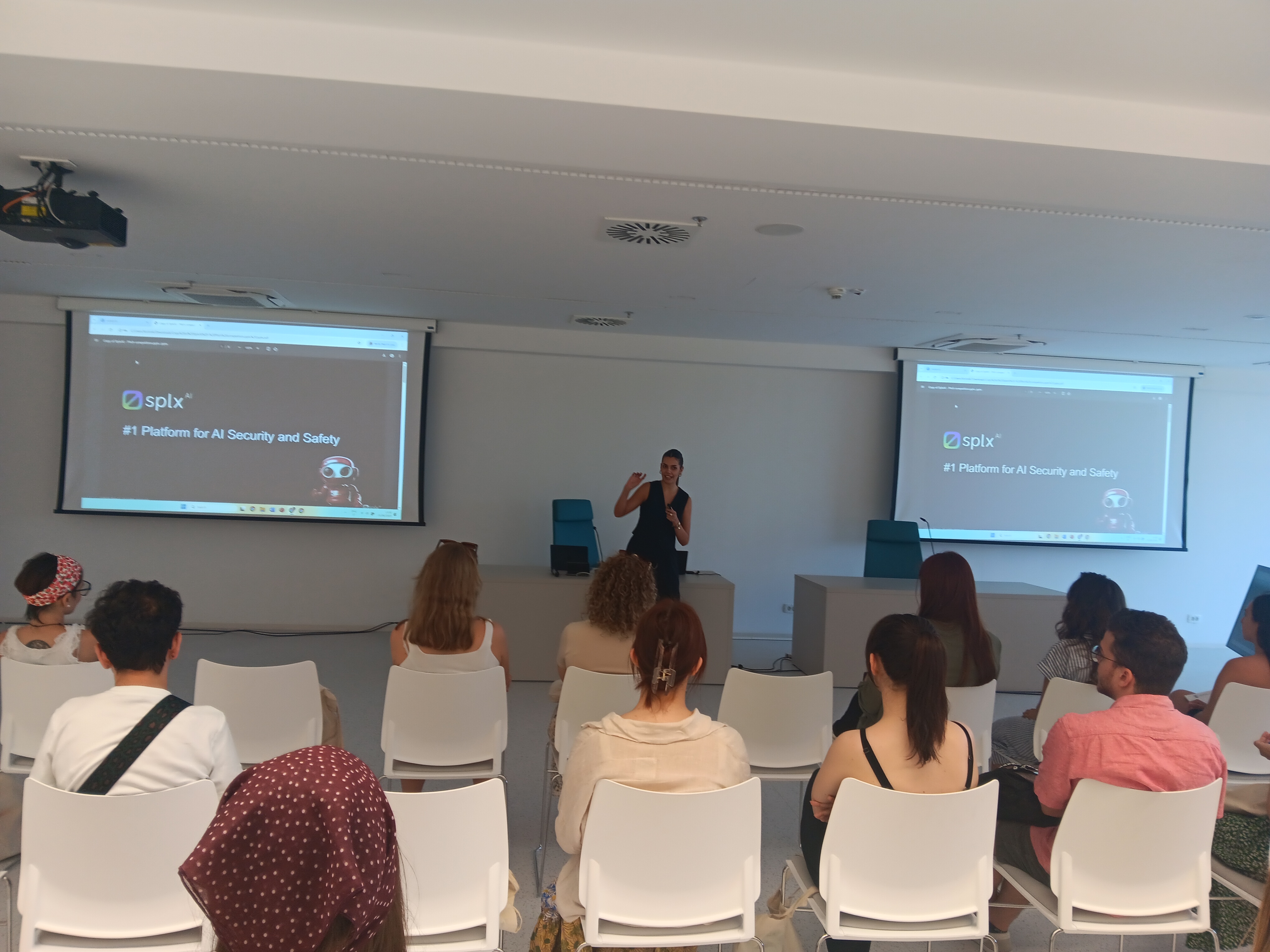
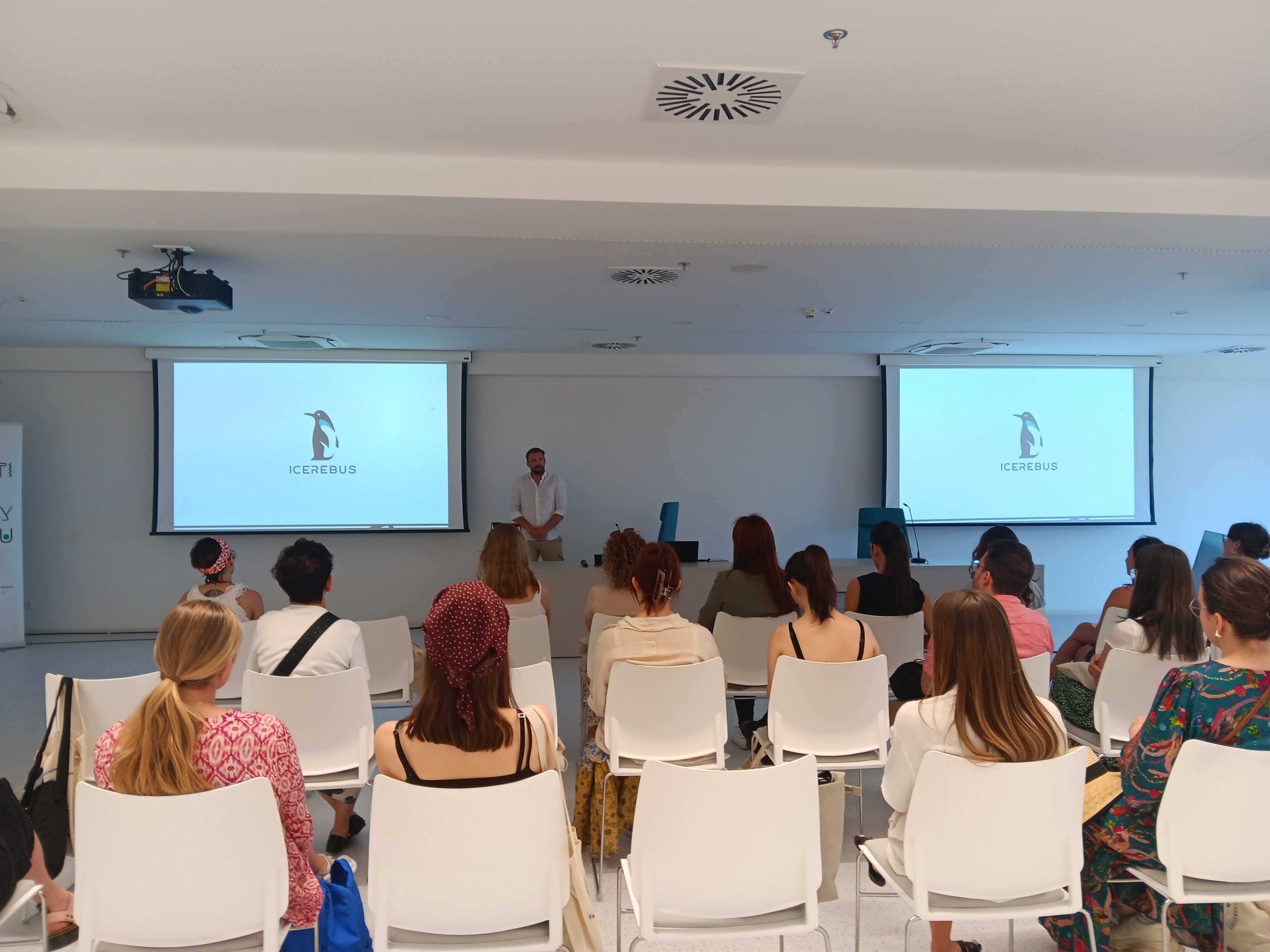
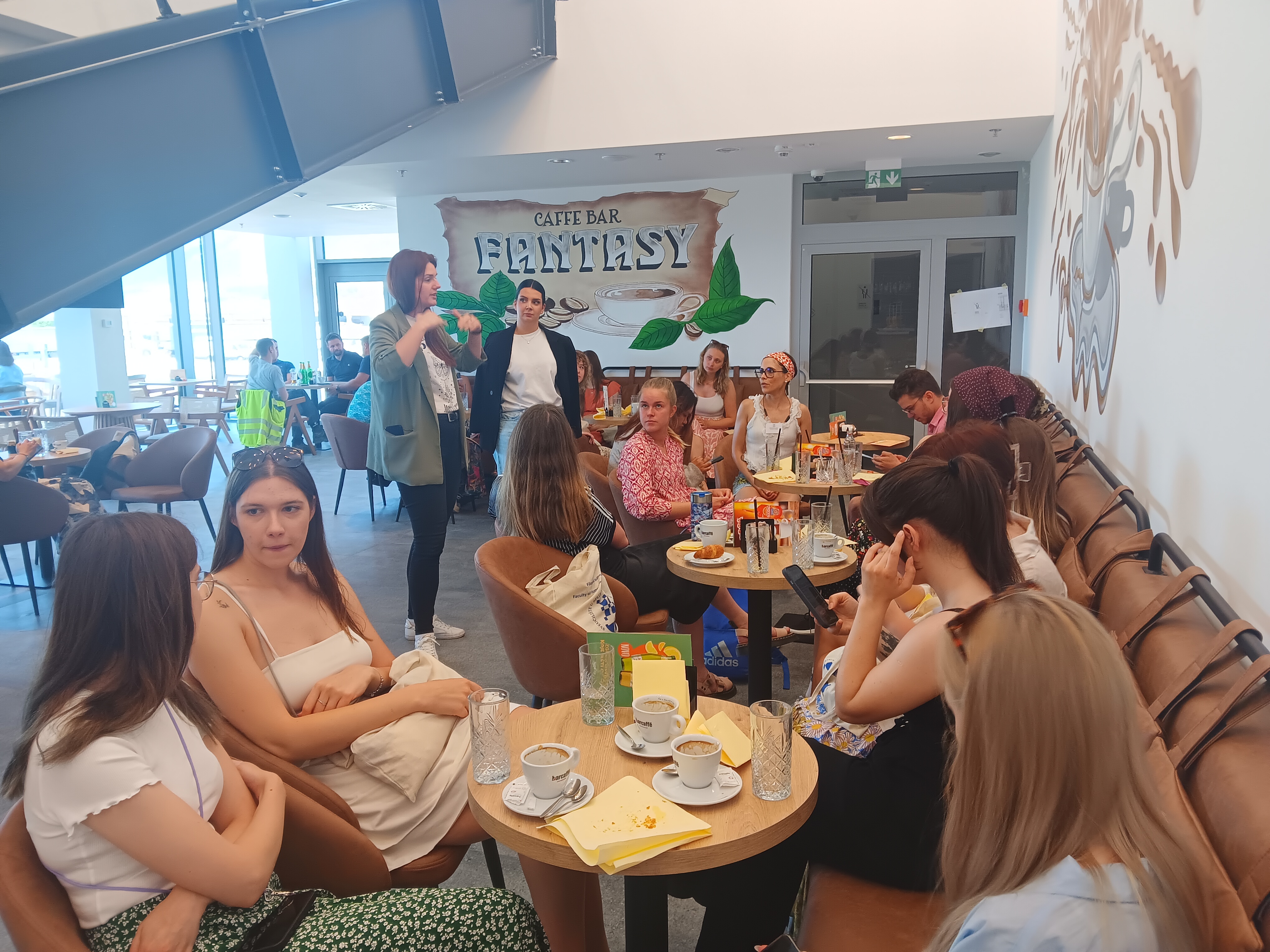
The central part of the program was a two-day social hackathon during which students, working in teams, developed socially innovative solutions to real-world challenges from their communities. These challenges had been collected over the previous nine months through the SEA-EU network, in collaboration with students, faculty, civil society organizations, and the wider community.
During the hackathon, students also conducted field research, developed survey questionnaires, and carried out in-depth interviews to gain a deeper understanding of the societal issues they were addressing.
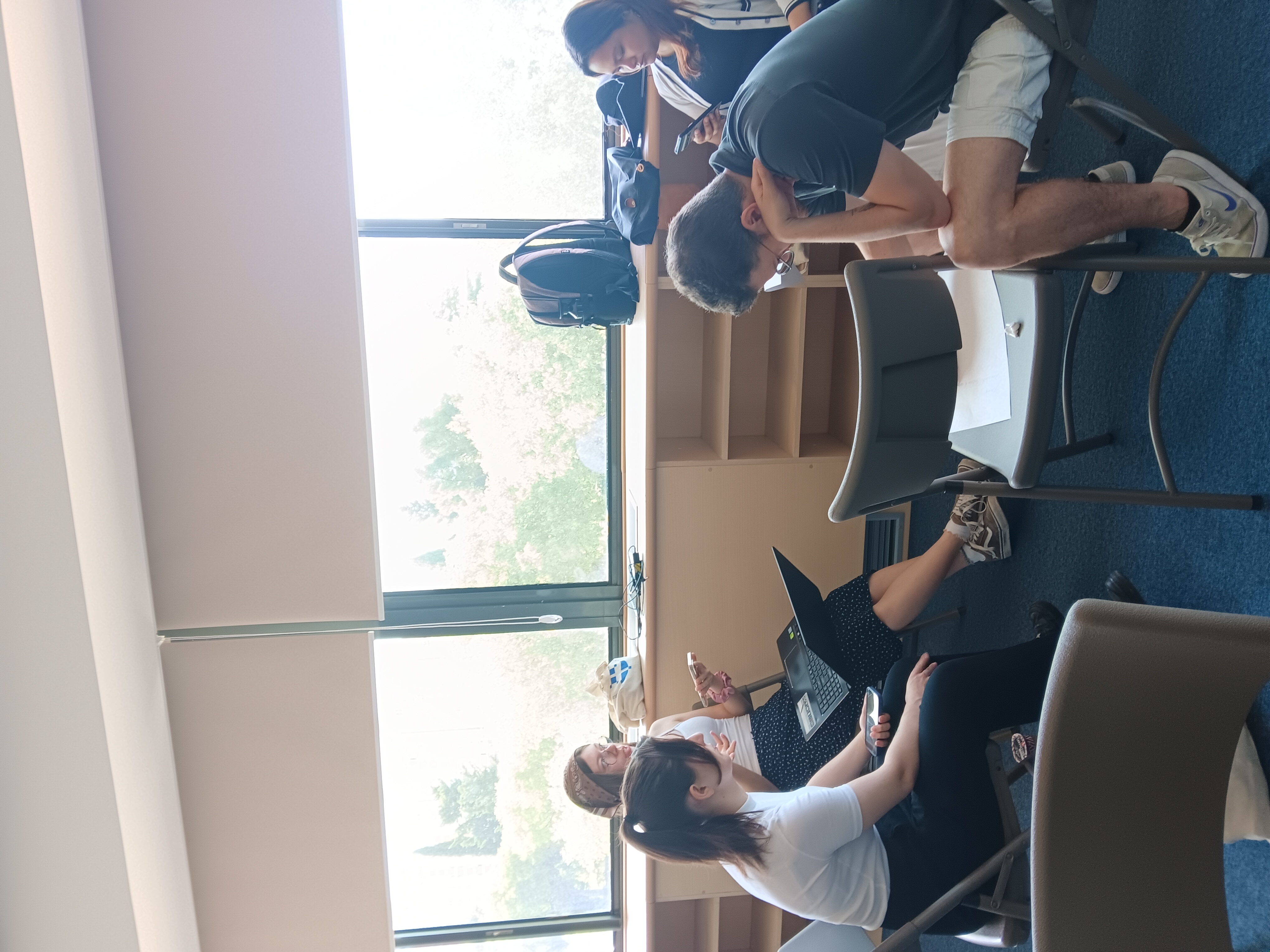
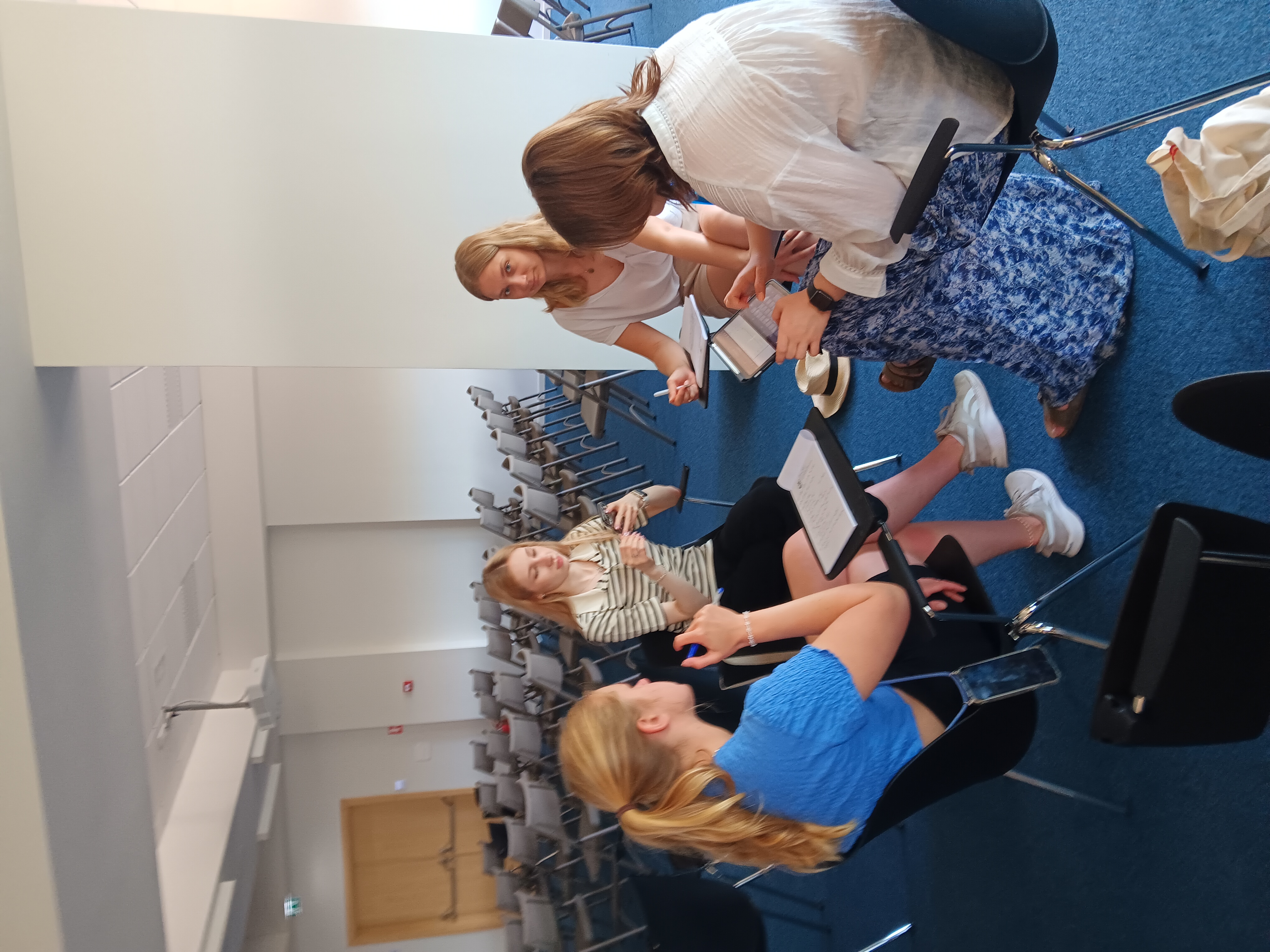
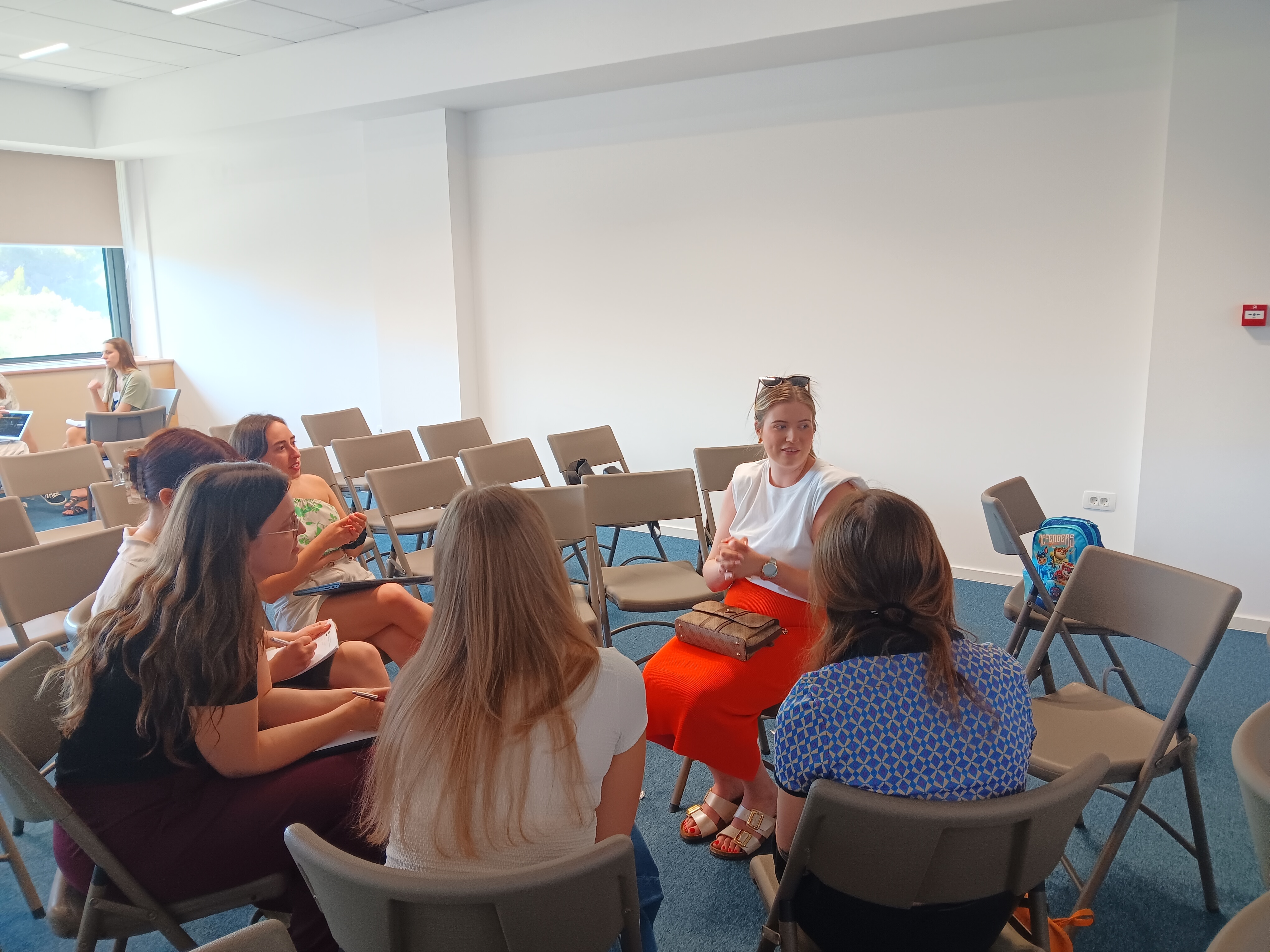
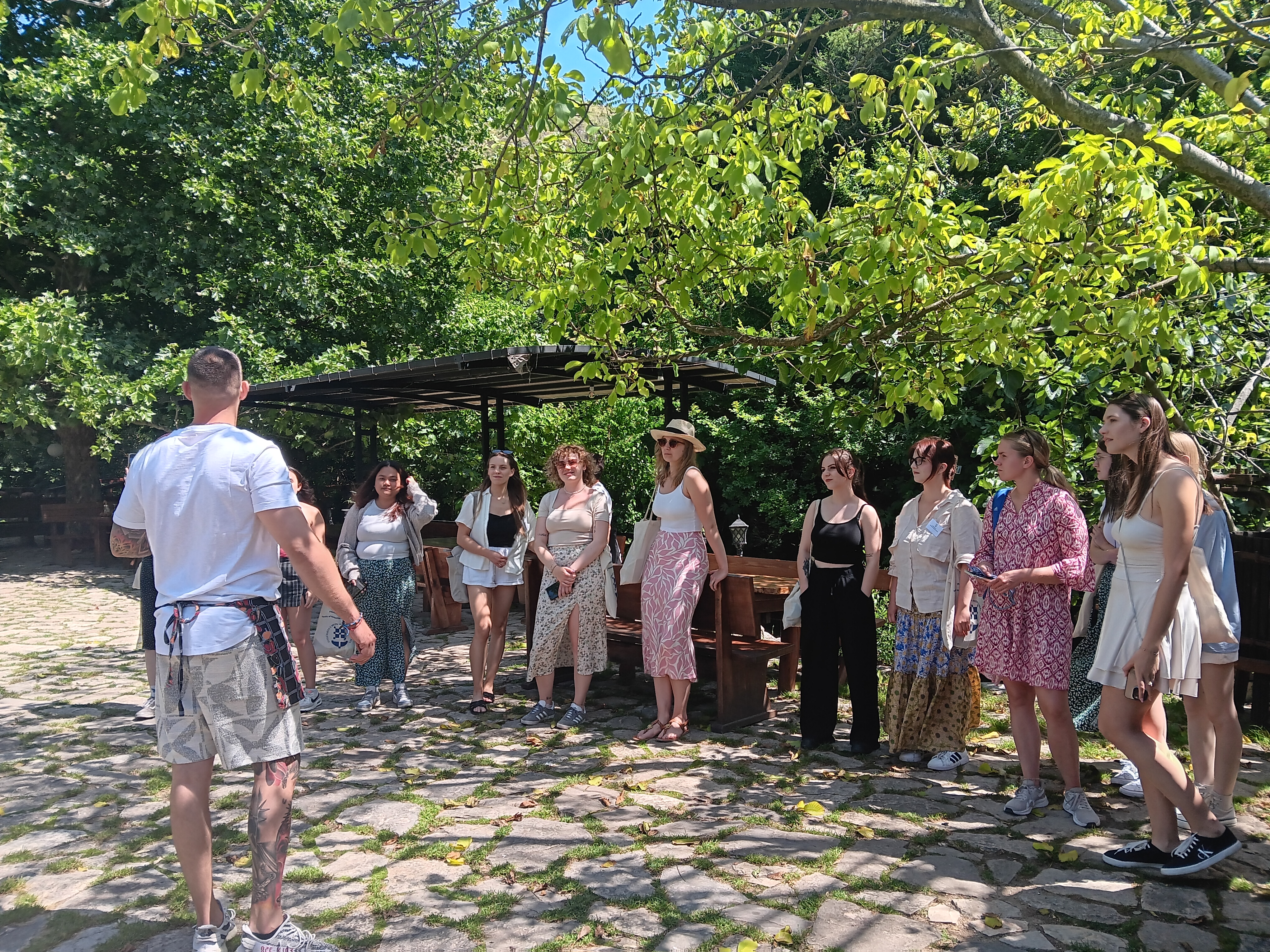
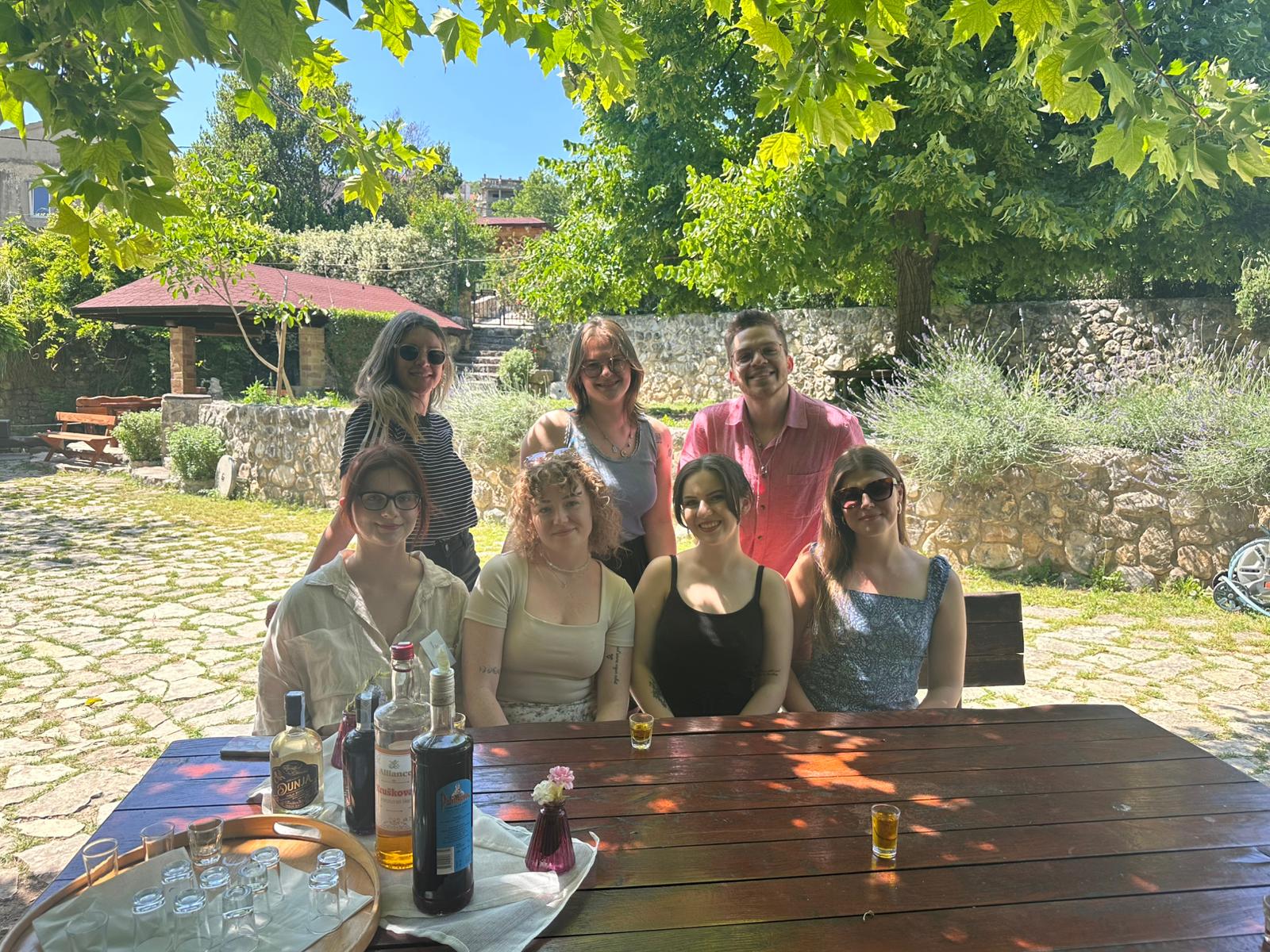
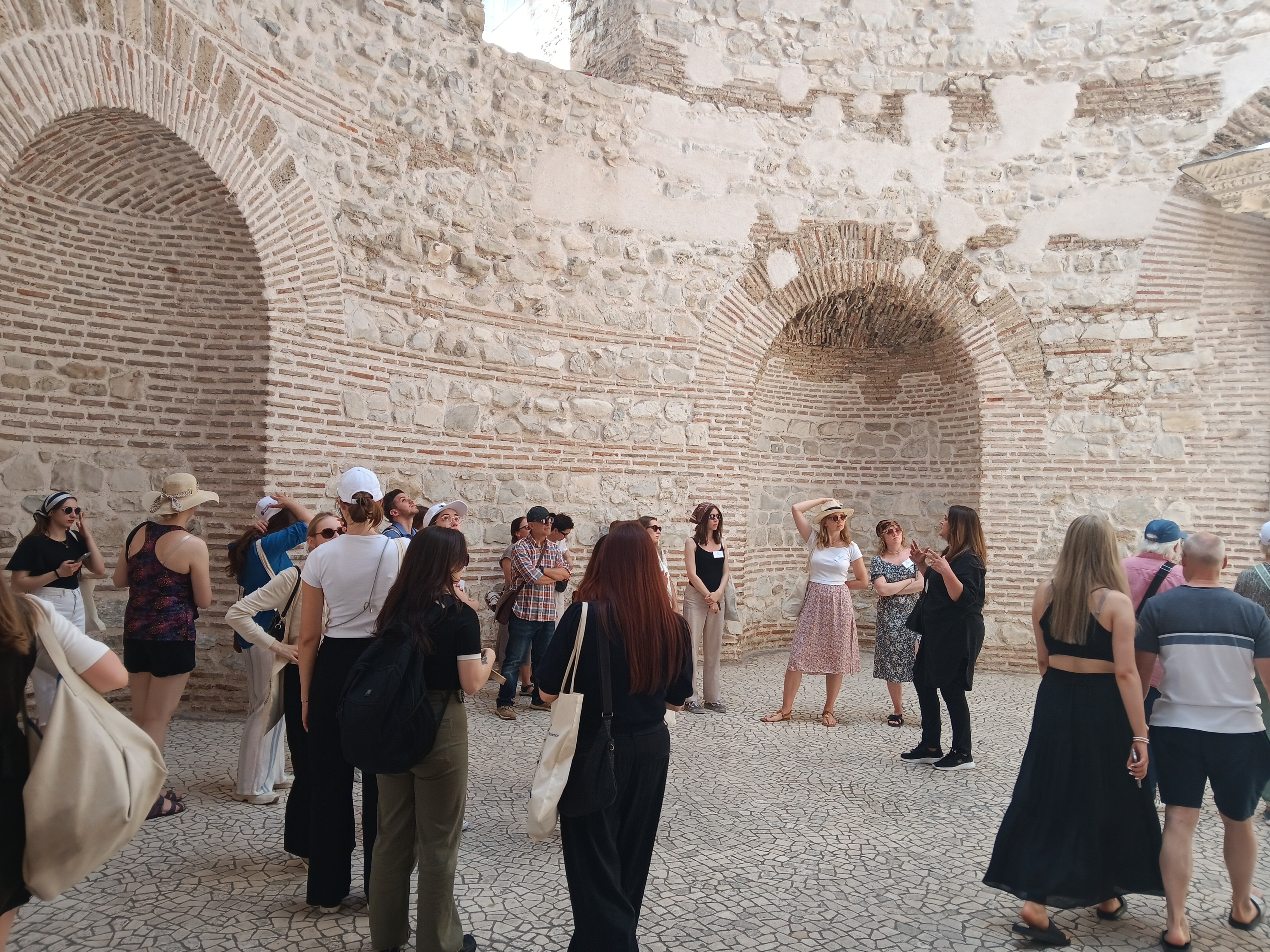
During the hackathon, students participated in a series of workshops focused on developing skills in reflection, effective communication, creativity, and presentation. In the final stage, teams presented their projects to mentors and representatives of local organizations, including Mihaela Mladar and Domagoj Goreta from the Sunce Association. The student projects addressed topics such as mental health, loneliness, intergenerational connection with older adults, support for children of young student-parents, and challenges faced by international students during their first mobility experiences.
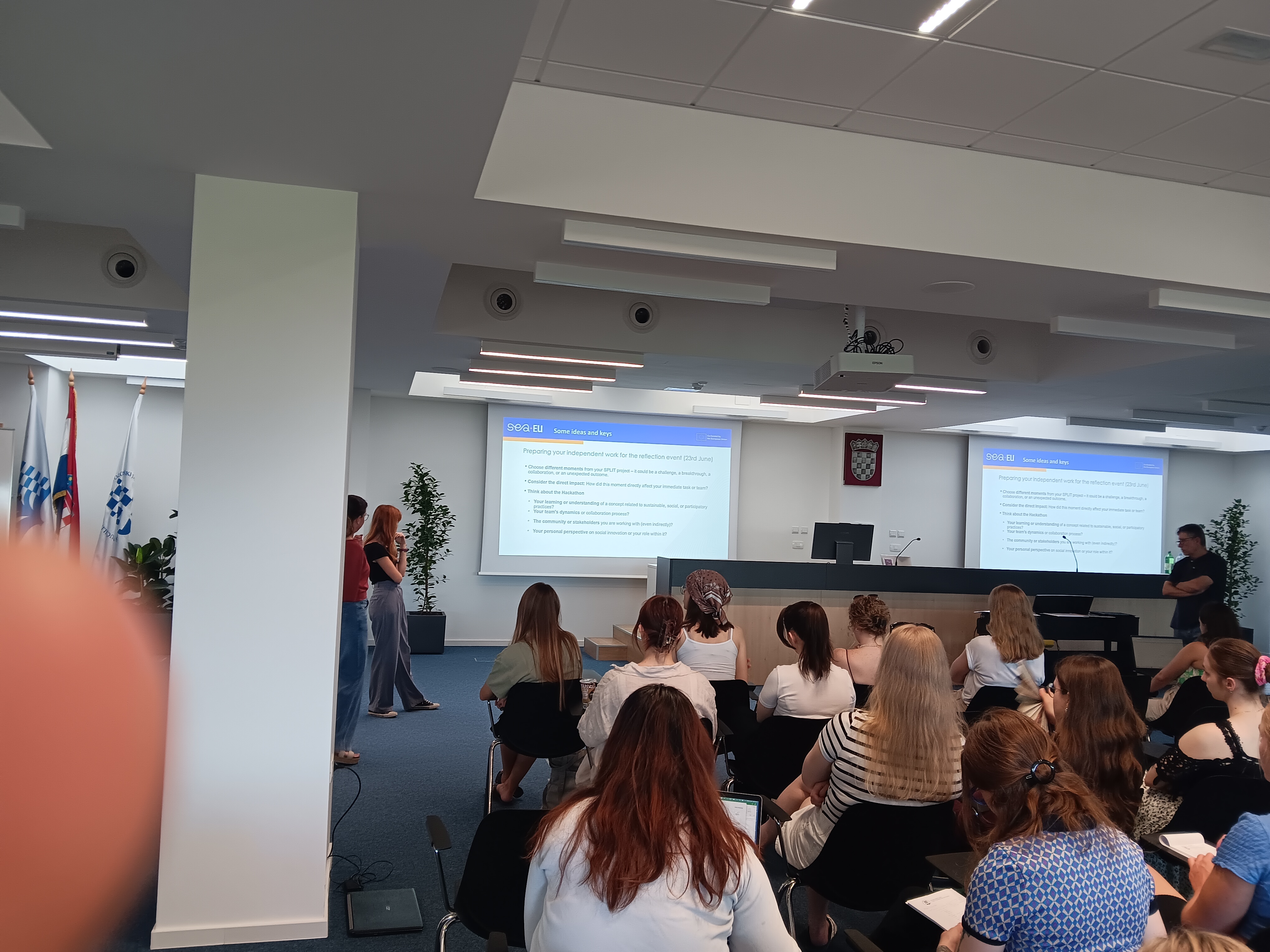
Special thanks to everyone who contributed to the development and implementation of the program: Associate Professor Morana Koludrović, Ph.D., Assistant Professor Ivana Restović, Ph.D., Professor Darko Hren, Ph.D., Associate Professor Tonći Jukić, Ph.D., and Vedrana Vučković, as well as the University Library, the Technology Park, RPO student Petra, and all others who supported the program.
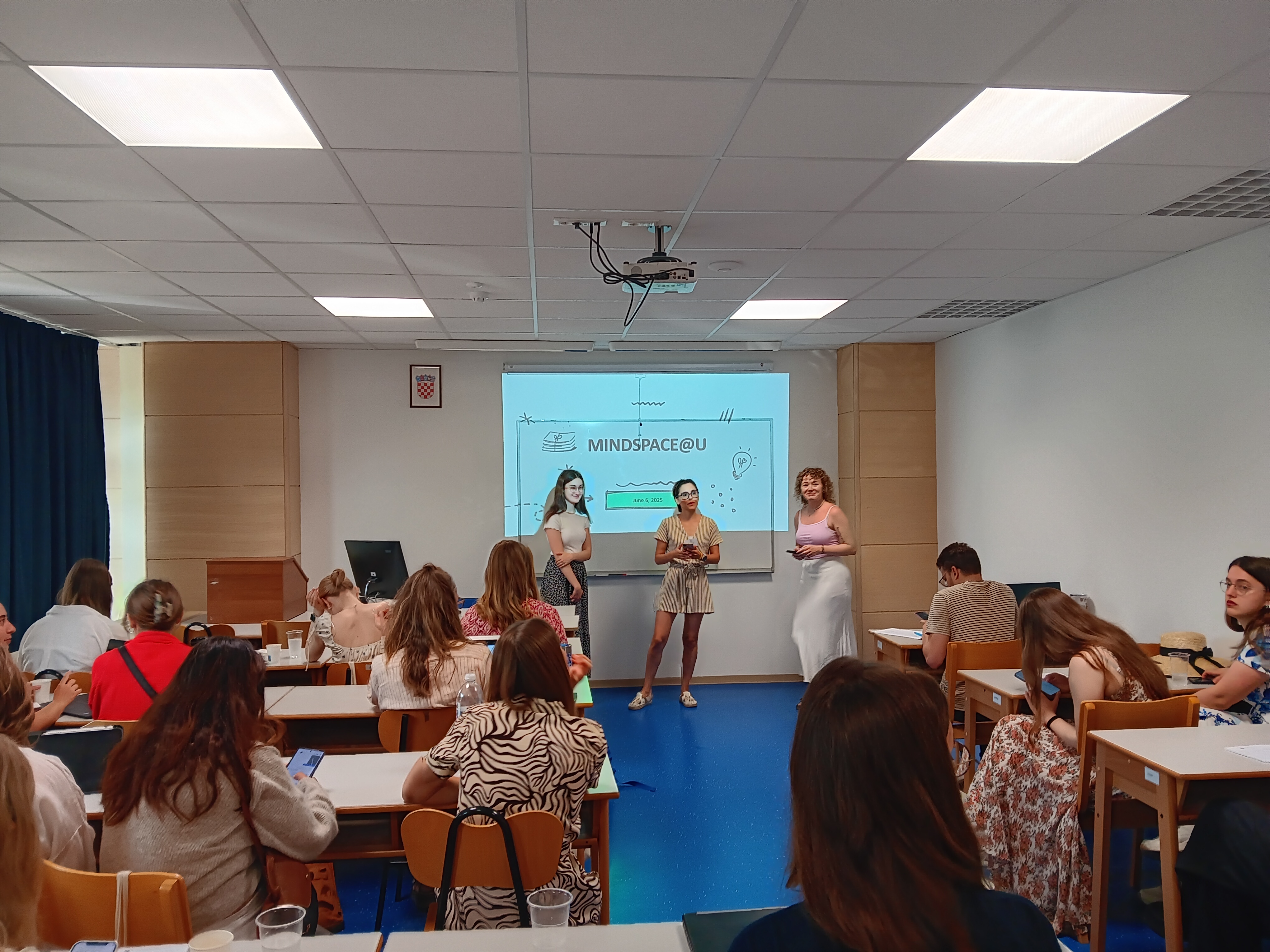
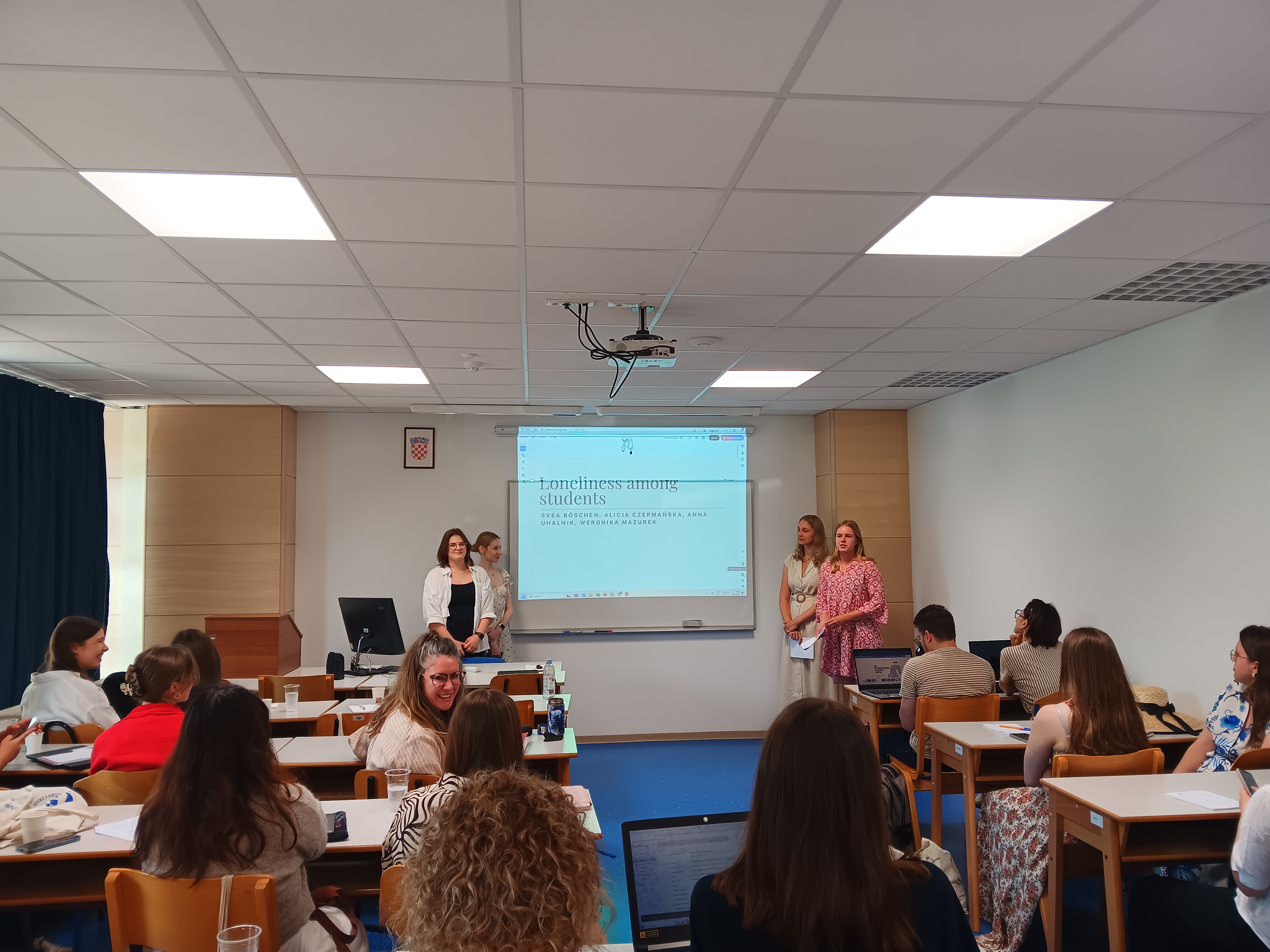
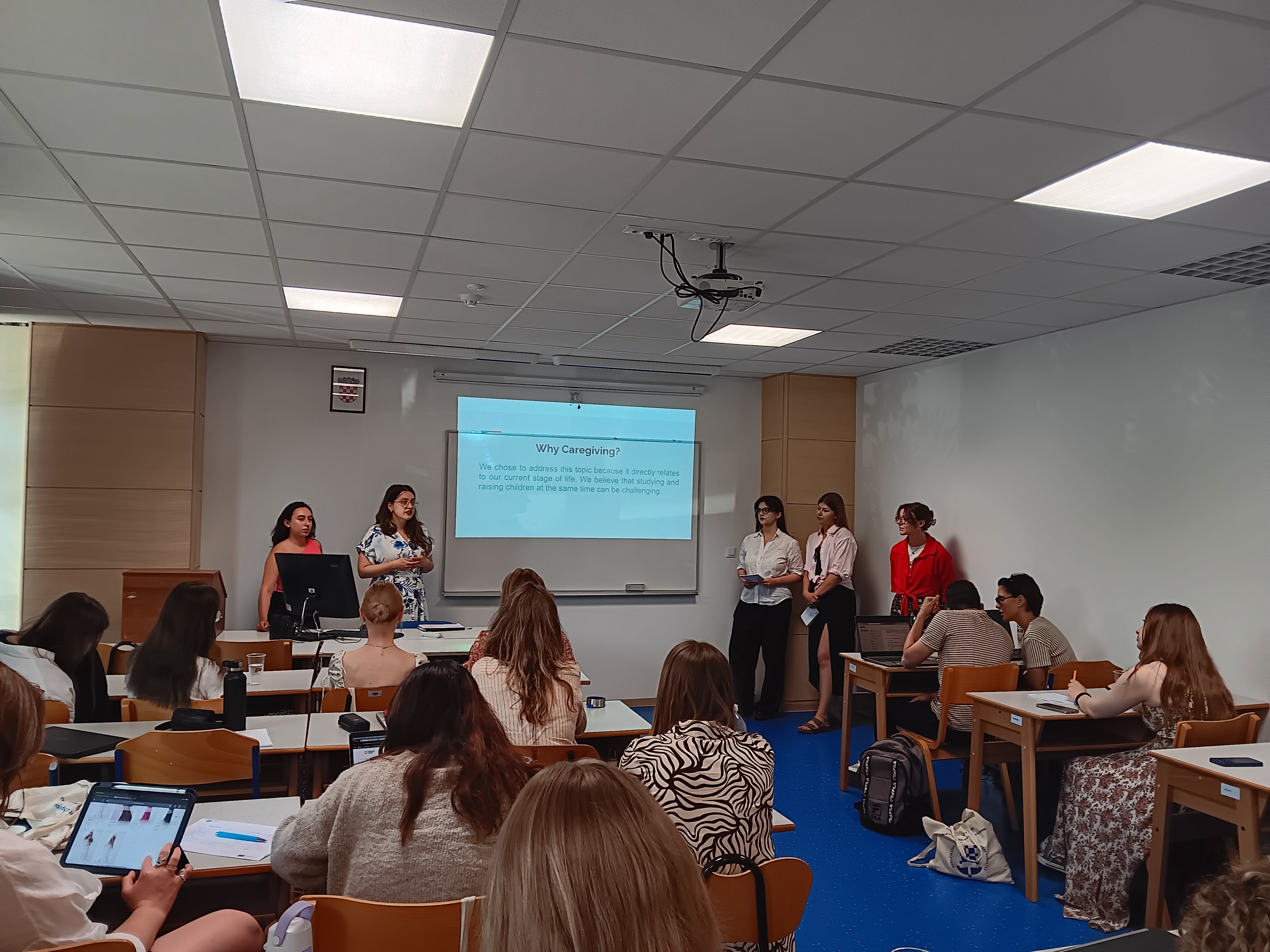
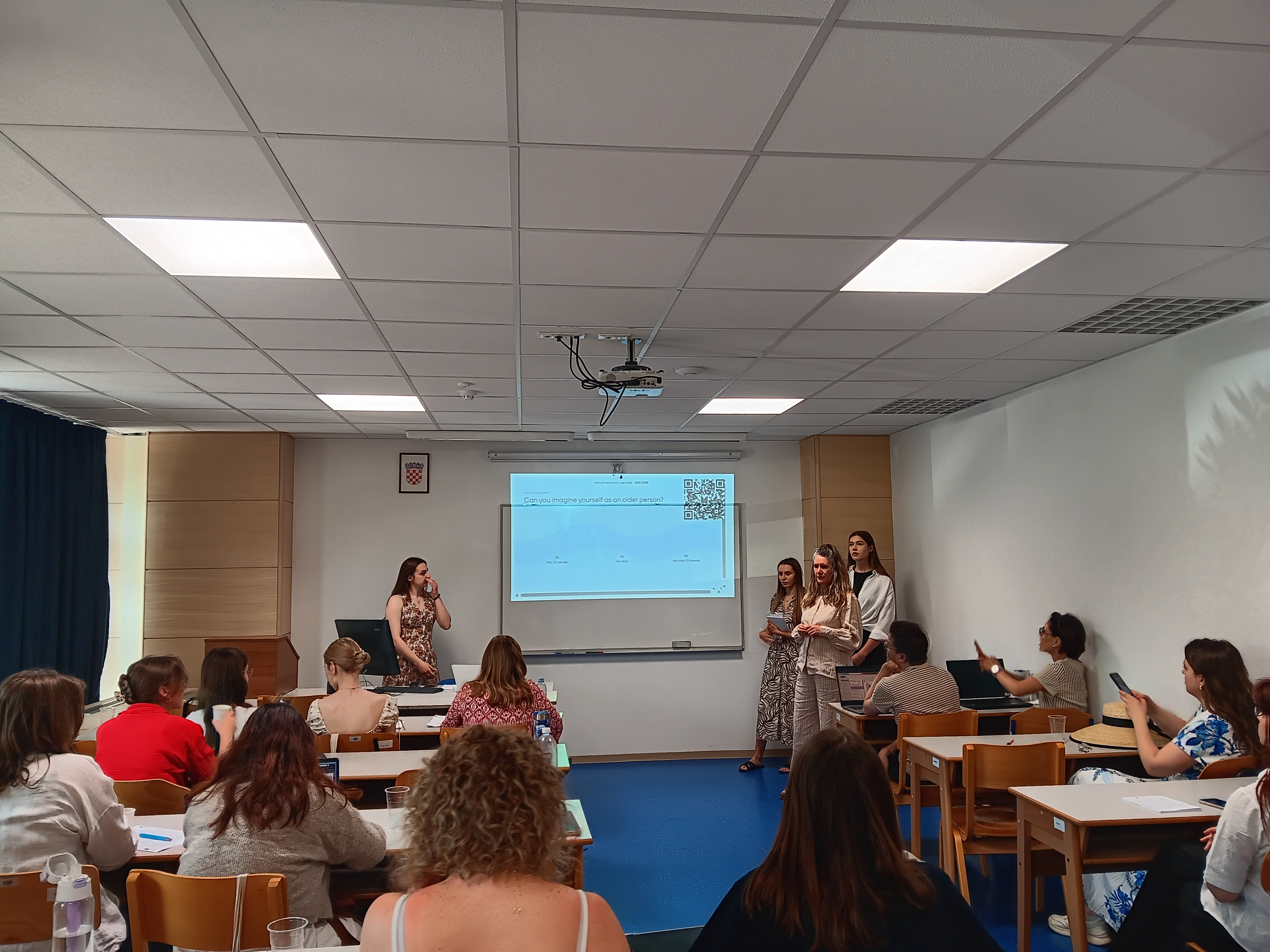
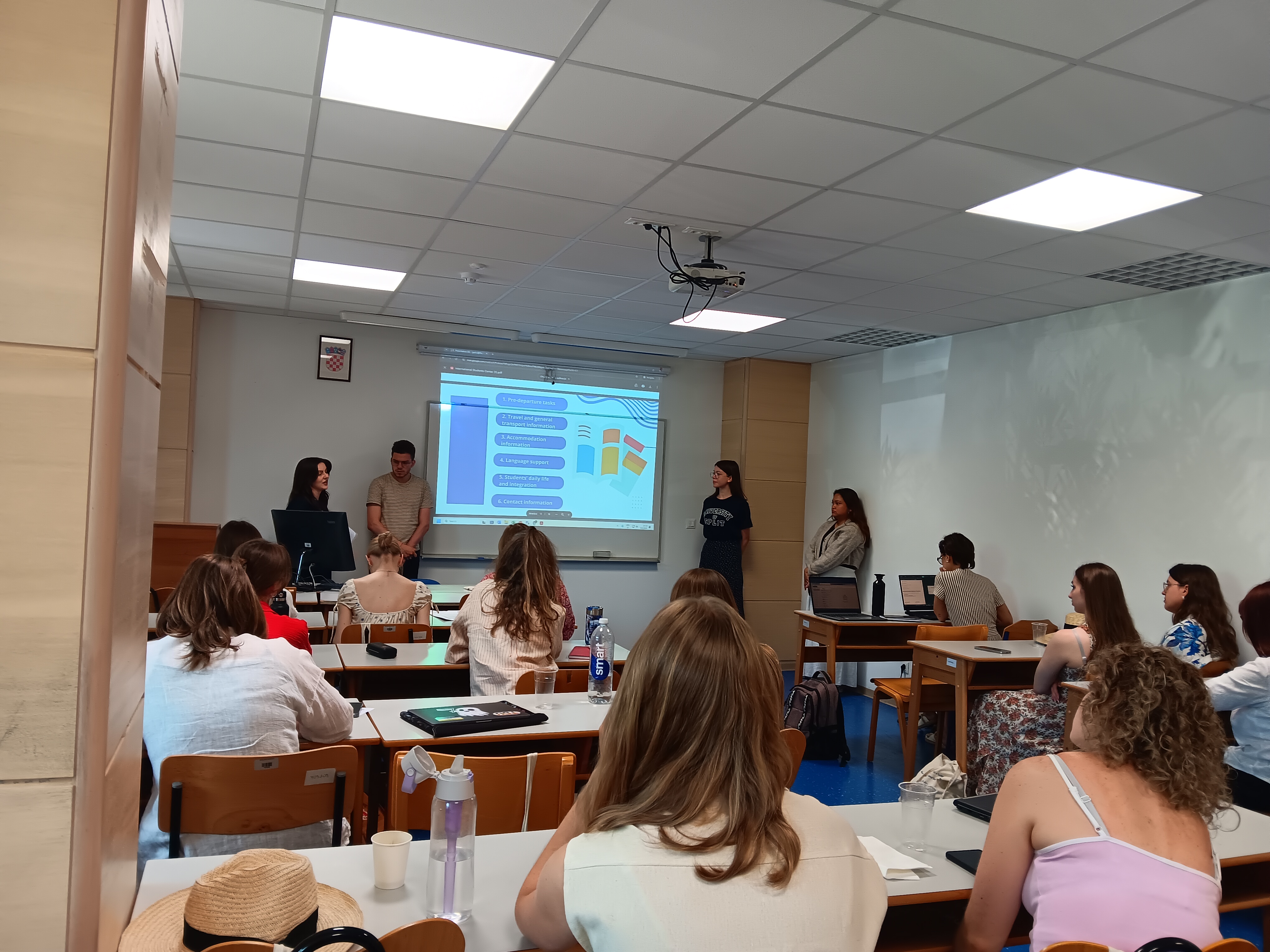
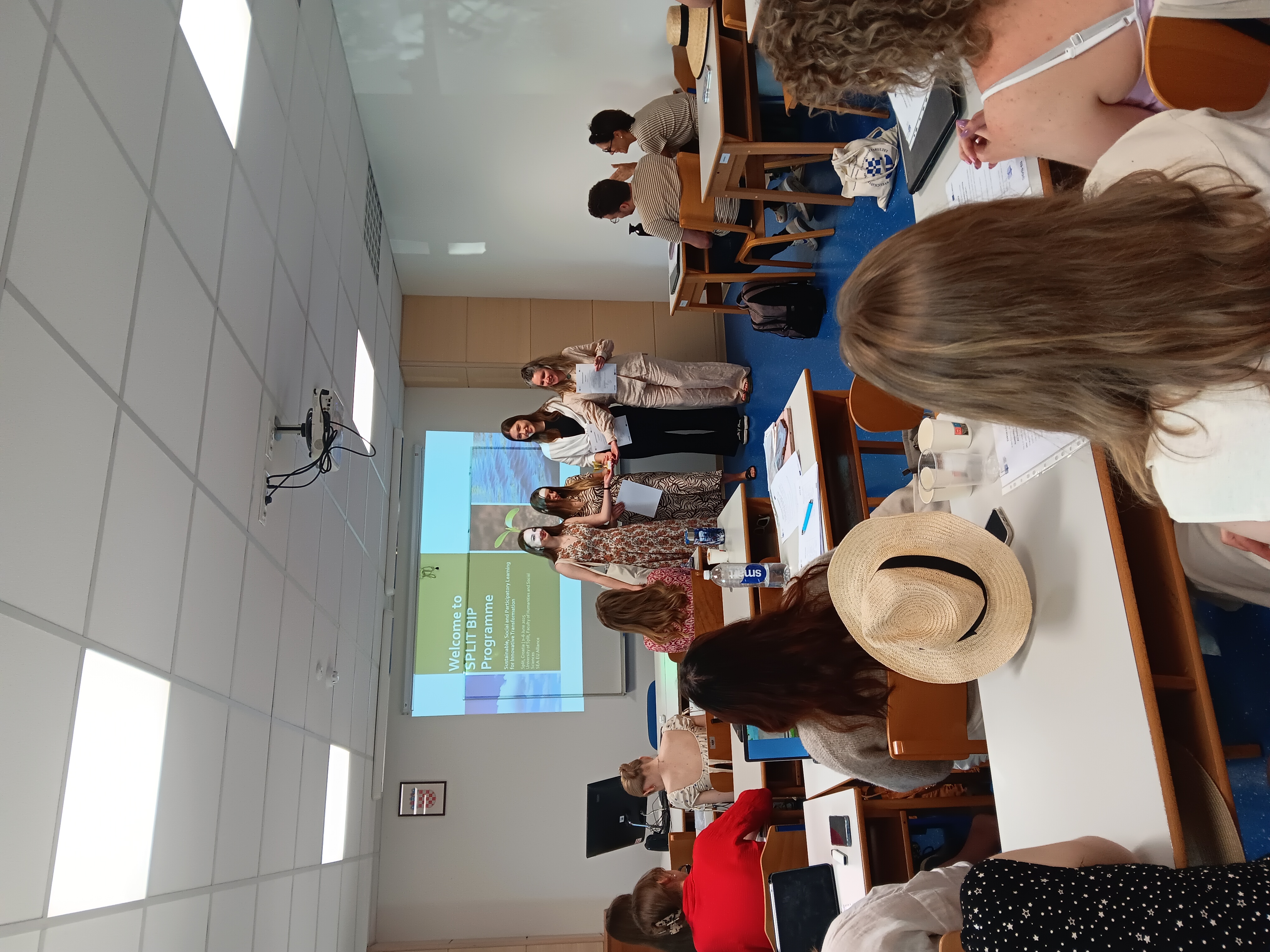
 Pristupačnost
Pristupačnost